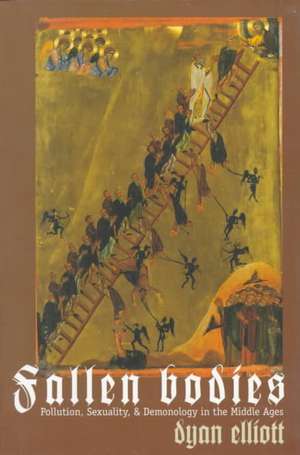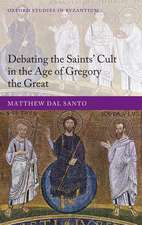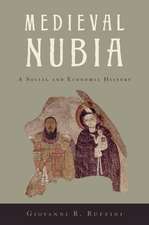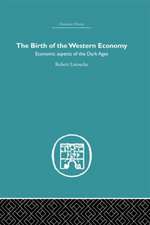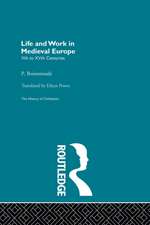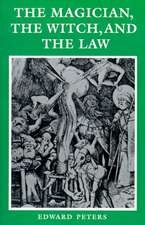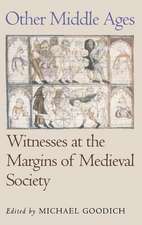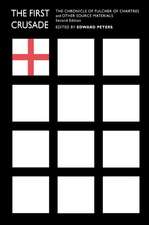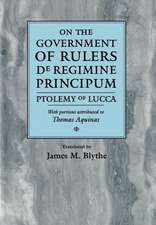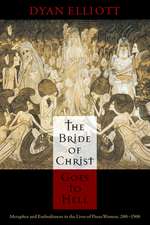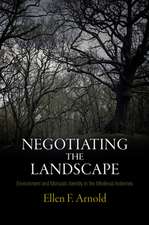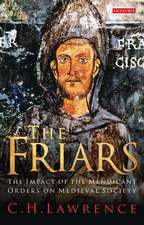Fallen Bodies: Pollution, Sexuality, and Demonology in the Middle Ages: Middle Age Series
Autor Dyan Elliotten Limba Engleză Paperback – 31 dec 1997
Medieval clerics believed that original sin had rendered their "fallen bodies" vulnerable to corrupting impulses particularly those of a sexual nature. They feared that their corporeal frailty left them susceptible to demonic forces bent on penetrating and polluting their bodies and souls.
Drawing on a variety of canonical and other sources, "Fallen Bodies" examines a wide-ranging set of issues generated by fears of pollution, sexuality, and demonology. To maintain their purity, celibate clerics combated the stain of nocturnal emissions; married clerics expelled their wives onto the streets and out of the historical record; an exemplum depicting a married couple having sex in church was told and retold; and the specter of the demonic lover further stigmatized women's sexuality. Over time, the clergy's conceptions of womanhood became radically polarized: the Virgin Mary was accorded ever greater honor, while real, corporeal women were progressively denigrated. When church doctrine definitively denied the physicality of demons, the female body remained as the prime material presence of sin.
Dyan Elliott contends that the Western clergy's efforts to contain sexual instincts and often the very thought and image of woman precipitated uncanny returns of the repressed. She shows how this dynamic ultimately resulted in the progressive conflation of the female and the demonic, setting the stage for the future persecution of witches."
Preț: 245.25 lei
Nou
46.94€ • 51.01$ • 39.46£
Carte tipărită la comandă
Livrare economică 21 aprilie-05 mai
Specificații
ISBN-10: 0812216652
Pagini: 312
Dimensiuni: 153 x 229 x 23 mm
Greutate: 0.5 kg
Ediția:New.
Editura: University of Pennsylvania Press
Seria Middle Age Series
Locul publicării:Philadelphia, United States
Recenzii
"Lyrical in parts, this is a deep and reflective reading of those clusters of contradictory images which attempted to make sense of the exultant and the vulnerable in medieval bodies. Dyan Elliott offers a potent combination of the rigor of textual analysis, the passion of feminism, and the insights of psychoanalysis, as she juxtaposes texts in sequences never before conceived. This will be a treat for all medievalists, a demanding and amply rewarding intellectual journey."--Miri Rubin, Pembroke College, University of Oxford
"This elegantly written book reveals and explores a set of profound if elusive connections that made the materialization of the witch in the early modern period, in Dyan Elliott's closing words, 'virtually irresistable.'. . . A dazzling recreation of pre-Enlightenment thinking about the overlapping configurations of pollution, this important book will be essential reading for premodern and early modern scholars of gender, sexuality, and the body."--"Medium Aevum"
